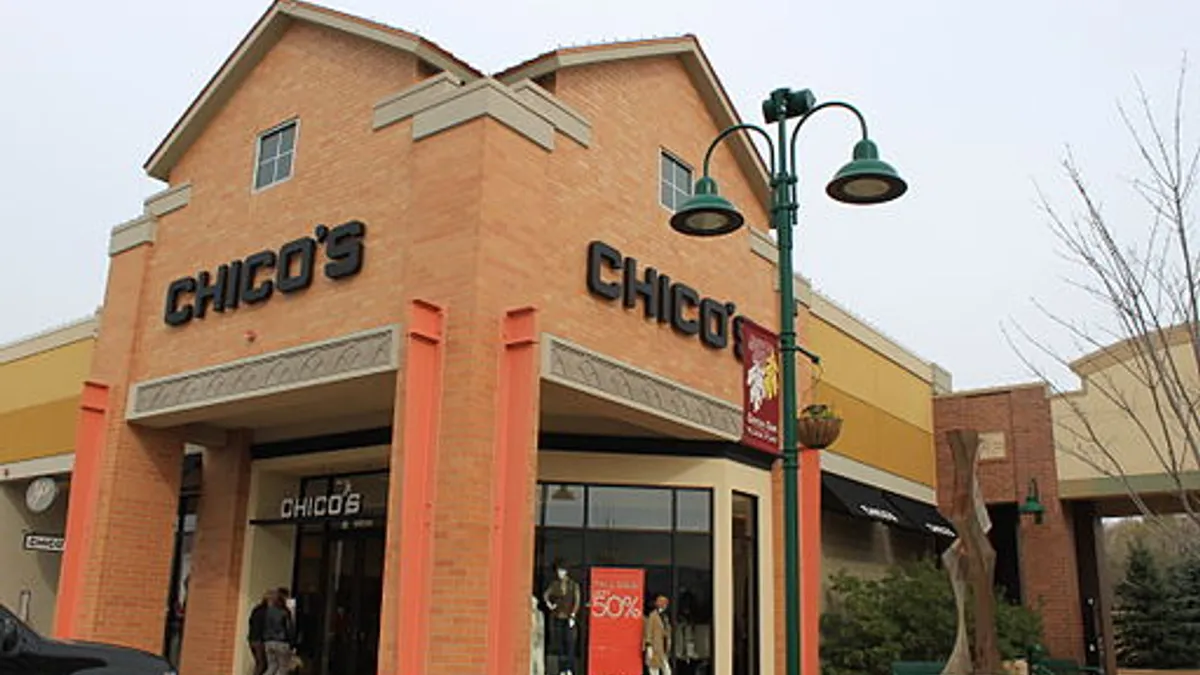Dive Brief:
-
Chico's FAS CEO Shelley Broader told CNBC on Tuesday that its recent move to start selling on Amazon is bringing shoppers into its stores, at least for returns.
-
"Finding alternative channels to introduce our product to new customers is what 2018 is all about for us," she told CNBC during its "Power Lunch" segment, "And so when you have so many prime members, we all know the number now, who better to partner with to gain those new customers for us?" Last month Amazon CEO Jeff Bezos announced the company has more than 100 million paid Prime members globally.
-
The struggling women’s apparel company late last month announced the tie-up with Amazon, and said it could be expanded beyond its namesake brand to its White House Black Market and Soma brands.
Dive Insight:
Some analysts warn against retailers selling on Amazon because of its history of knocking off best-sellers for its own in-house brands using the access to sellers' sales statistics. But Broader, who has held the CEO spot since 2015, said on Tuesday that such risks outweigh the gains. "It’s certainly not as simple as that,” she told CNBC.
Other retailers have successfully partnered with Amazon. Best Buy employs Amazon's Alexa for sales and Kohl’s accepts Amazon returns at designated spaces in some stores. The Chicago-area stores that are part of Kohl’s experiment to take Amazon returns and sell Amazon devices have been the boon that Kohl’s executives hoped for, according to a study this week from Gordon Haskett Research Advisors. And Best Buy's careful employment of Alexa also drove holiday sales, sometimes outpacing Amazon itself, according to managed analytics firm Ugam. Amazon and Best Buy are also teaming up to sell Amazon’s new Fire smart TVs to customers in the United States beginning this summer and in Canada later this year, a deal most experts say Amazon needs more than Best Buy.
Chico's has been buffeted by slowing traffic to malls and in February reported that fourth quarter net sales fell 2.2% to $587.8 million in last year's Q4, mostly because of a 5.2% same-store sales decline and the impact of shuttered stores. For the full year, the company's net sales fell 7.8% to $2.3 billion as same-store sales declined 7.7%. The company was among those pegged by Morgan Stanley analysts last month as losing apparel market share to Amazon. After taking another 1.5% of market share in U.S. apparel sales last year, Amazon is edging closer to becoming the nation’s top apparel retailer.
















